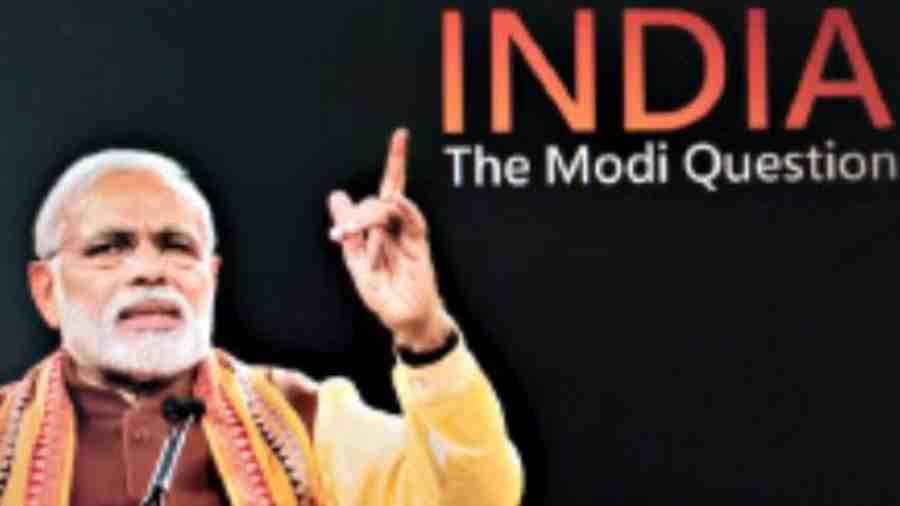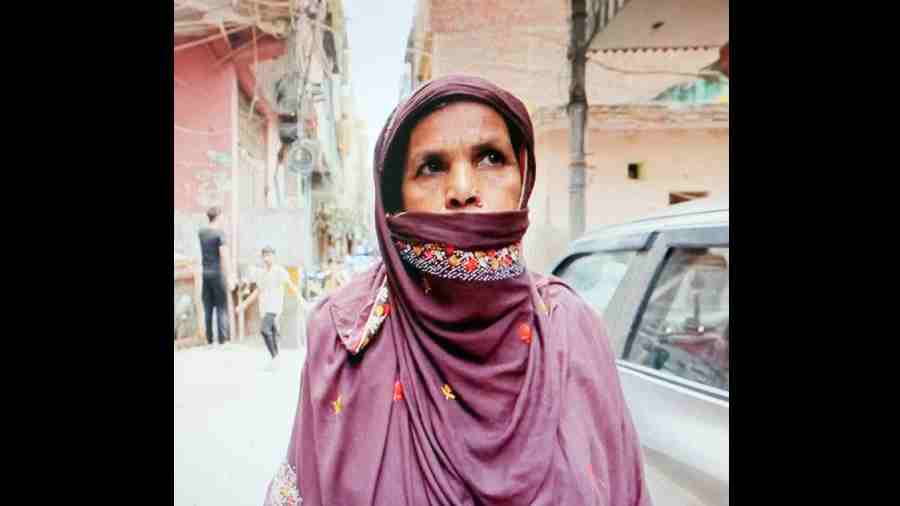Campuses are witnessing a battle over the BBC documentary, India: The Modi Question, with some students seeking to screen it while being met with warnings from university authorities, power cuts, Wi-Fi disruptions, police detentions, and retaliatory screenings of The Kashmir Files by RSS student arm ABVP.
At JNU and Pondicherry University, Leftist student groups that organised screenings of the BBC film — which questions Narendra Modi’s role as chief minister during the 2022 Gujarat riots — accused the ABVP of physically attacking the events.
The ABVP, which denies the charges, adopted a counter strategy in some universities by screening The Kashmir Files, which depicts how militancy forced many Kashmiri Pandits to flee the Valley in 1990.
Pondicherry
On Wednesday, the CPM-backed Students Federation of India (SFI) had announced a plan to screen the BBC film at the hostels of Pondicherry University in the evening.
Before the event, the Wi-Fi connection snapped, with the students blaming the varsity authorities. Following this, about 300 students from the various hostels gathered at the Gender Gate of the university and watched the documentary over laptops and cell phones, using mobile hotspot.
As the event began, a group of ABVP members allegedly started sloganeering. After sometime, there was a scuffle.
Anantha Padmnabhan, SFI unit president at the university, said: “Three of our members received minor injuries as ABVP members barged into our gathering and manhandled the students watching the documentary.”
The university authorities had earlier verbally advised the organisers not to screen the film. While the screening was on, security guards of the university shot videos of students watching the film. Padmnabhan said the university might act against the students on the basis of the videos.
Hyderabad
In the Central University of Hyderabad, SFI had on Wednesday announced it would screen the BBC documentary in front of Ladies Hostel North at 5pm on Thursday.
The ABVP retaliated by issuing posters on social media about The Kashmir Files being screened near the shopping complex on the campus. Both films were screened on Thursday.
Earlier, the university authorities had advised the SFI not to go ahead with the screening of the BBC film.
“The ABVP has come up with a counter strategy to our screening of the BBC film. We have no issues; we welcome it,” said Siva Durga Rao, an SFI leader at the Hyderabad university.
A group of students had earlier screened the BBC documentary under the banner of the Fraternity Movement at the Hyderabad university last Saturday, just hours after it was reported that the government had asked YouTube and Twitter to block access to the film.
Delhi (JNU)
At JNU, Left students’ groups had organised a public screening of the BBC film on Tuesday but a power cut — which the SFI claimed was a university ploy — forced the students to watch it on their mobiles and a laptop arranged by the organisers.
The students later accused the ABVP of trying to disrupt this mass viewing by throwing stones.
The ABVP’s state media convener for Delhi, Ambuj Mishra, denied any protests or violence by his organisation on campuses where Left groups have been screening the BBC documentary.
“Our position is clear. The Prime Minister has been exonerated by the Supreme Court of India in the Gujarat riot case,” he said.
“Appreciation of the BBC film reflects the colonial mindset of the organisations screening the film. Their actions are questioning the judgment of the highest court. We are not protesting. We have left it to the universities to handle these issues.”
In June 2022, the Supreme Court had upheld the closure of a riot conspiracy case against Modi.
Delhi (Jamia)
The police on Thursday released 13 students they had detained overnight over an attempt to screen the BBC documentary at the Jamia Millia Islamia on Wednesday, PTI reported.
Heavy deployment of police by the university had prevented the screening, with the cops detaining four SFI leaders on Wednesday morning. Scores of students were later detained on Wednesday as they gathered outside the university gate to protest against the detention of the four leaders.
The police released most of the detained students on Wednesday evening barring 13, who were freed after the Republic Day Parade on Thursday, an officer said.
These 13 included the four SFI leaders detained on Wednesday morning: SFI Jamia unit secretary Azeez, SFI south Delhi area vice-president Nivedya, and Jamia unit members Abhiram and Tejas.
Padmnabhan, the SFI leader at Pondicherry University, said that universities, which are supposed to be places for questioning and debates, had turned into government-controlled bodies.
“Free thinking, debate and questioning existing knowledge are essential to education and research,” he said.
“Universities provide the space for free thought on every issue. Our objective is to enable discussion on the documentary and its findings, which is an academic exercise. It is against the interest of academics to prevent screening of the film.”












